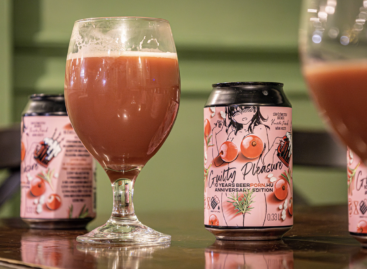Magazine: The scent of change
🎧 Hallgasd a cikket:
In the past 2-3 years the majority of enterprises in the Hungarian wine market learned to accommodate to crisis conditions. New technologies and sales techniques are used and at the same time consumers have become more knowledgeable about wine.
Réka Kata Molnár, product manager of Törley Pezsgőpincészet Kft. talked to our magazine about a palpable sales growth this year, the result of strong trade marketing activity and the growing popularity of rosé wines. János Frittmann, co-owner of the Frittmann winery told our magazine that from the 2013 vintage white and rosé wines are of exceptionally good quality. In his view consumers are still looking for light and fresh wines. Ferenc Szlávik, head of the top gastronomy and wine division of the Zwack Izabella Wine Shop, spoke to us about their 200-location spritzer campaign concentrated to football World Cup viewing sites, which had a positive influence on their sales. In the meantime there has been a price war going on hypermarket shelves. Rosés and whites produced by major wineries have become available for less than HUF 1,000. This is obviously good for consumers but does harm to the profitability of winemakers. Wine adulteration has practically disappeared since the authorities started using analytic methods. However, Mr Frittmann reckons that in the case of imported wines increased control won’t be enough. Mr Szlávik opines that if less cheap imported wine enters the Hungarian market, demand for domestic grape will increase. The experts agreed that there is no collective wine marketing in Hungary at the moment. Mr Frittmann believes in the power of the National Council of Wine Communities (HNT), but Mr Szlávik thinks that the wine sector still lacks a message that could be communicated collectively. Despite consumers’ reducing purchasing power more wine-themed exhibitions and festivals were organised in the last few years.Related news
More related news >
Related news
Hungarian beer magazine celebrates with rosé beer
🎧 Hallgasd a cikket: Lejátszás Szünet Folytatás Leállítás Nyelv: Auto…
Read more >(HU) Tortadíszítés-egyetem – A nap videója
🎧 Hallgasd a cikket: Lejátszás Szünet Folytatás Leállítás Nyelv: Auto…
Read more >





